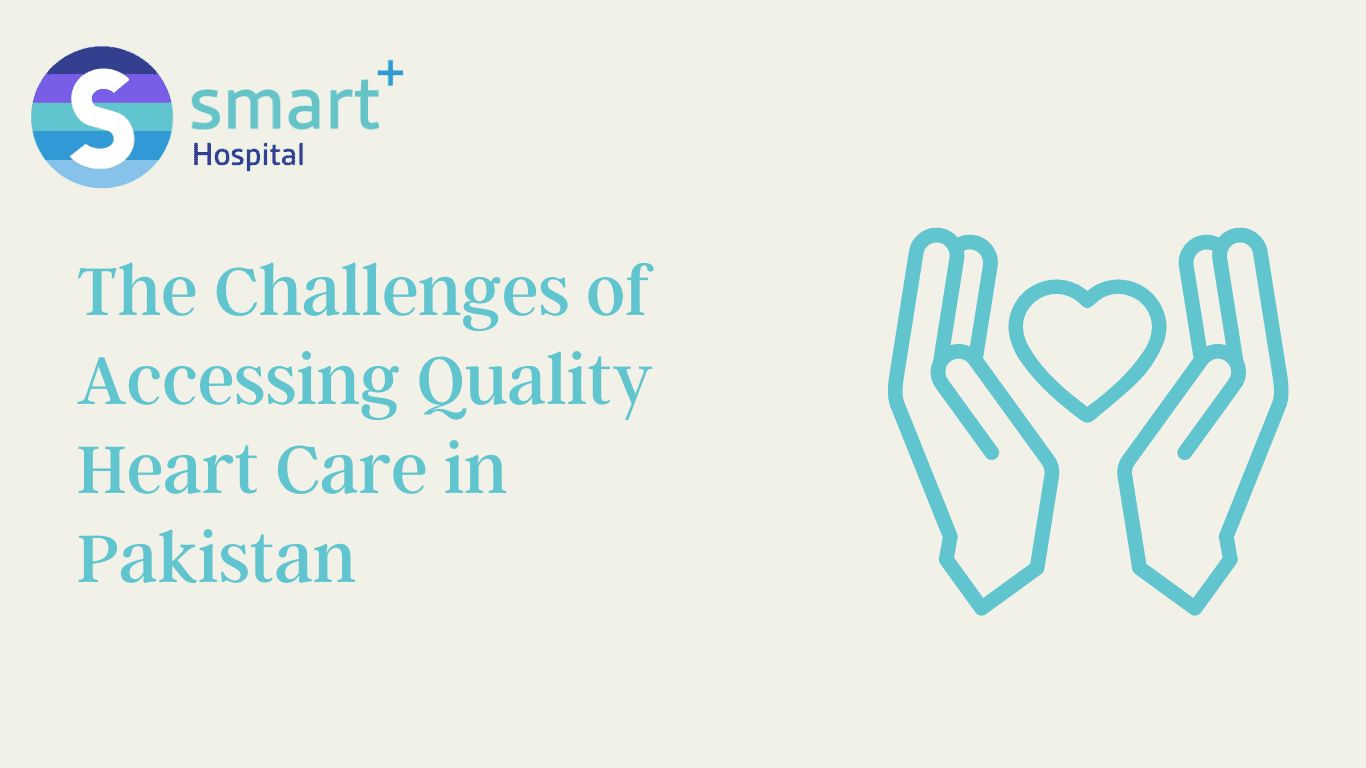Heart disease is a primary public health concern in Pakistan, with a significant increase in cases reported in recent years. Despite the growing burden of cardiovascular disease, many Pakistanis struggle to access high-quality heart care due to various challenges.
This blog post will explore some of the major obstacles to accessing quality heart care in Pakistan and highlight a potential solution to address these challenges.
Lack of Specialised Services and Facilities
One of the biggest challenges facing many Pakistanis seeking heart care is a lack of access to specialised services and facilities. Heart disease is a complex and multifaceted condition that often requires a range of diagnostic tests, medical interventions, and ongoing management.
However, many areas of Pakistan lack the necessary infrastructure and resources to provide comprehensive heart care services. This can leave patients struggling to find the care they need and may contribute to delays in diagnosis and treatment.
High Cost of Treatment
Another major obstacle to accessing quality heart care in Pakistan is the high cost of treatment. Even for those who can access specialised services and facilities, the cost of diagnostic tests, medications, and procedures can be prohibitively expensive.
Many Pakistanis struggle to afford even basic healthcare, let alone the dedicated care required for heart disease. This can create significant barriers to accessing the care needed to manage and treat heart disease effectively.
Shortage of Trained Healthcare Professionals
A third challenge to accessing quality heart care in Pakistan is the need for more trained healthcare professionals. In many areas of the country, there are not enough doctors and nurses with the specialised training and expertise to provide high-quality heart care. It leads to long appointment waiting times and may result in patients receiving suboptimal care due to their healthcare providers’ lack of knowledge or experience.
Poor Infrastructure
Inadequate healthcare infrastructure is a major contributing factor to the declining healthcare system in Pakistan. The lack of proper policy-making and planning in this area makes insufficient healthcare facilities available to the general public.
Government hospitals, in particular, suffer from a shortage of doctors, nurses, and other personnel, which often leads to overcrowding due to their large population. Additionally, patients may have to endure uncomfortable and cramped conditions due to a shortage of beds.
Hospital conditions are often unsanitary and unhygienic, and security is a concern. Patients may not receive adequate care, and essential medicines and consumables are often scarce. Hospital staff may engage in unethical behaviour, such as demanding bribes from patients.
Moreover, basic necessities such as reliable water and power supply may not be available, and ambulances may be out of service due to technical problems or corruption, leaving patients to fend for themselves.
The SMART Teaching Hospital: A Promising Solution to Heart Care Challenges in Pakistan
Despite the above-mentioned challenges, there are some promising developments on the horizon for those seeking quality heart care in Pakistan. One potential solution to the obstacles discussed above is the establishment of the first-ever 24-hour Joint Commission International (JCI) accredited SMART Teaching Hospital in Azad Jammu and Kashmir. This hospital, which is set to open soon, aims to provide world-class healthcare services to the people of Pakistan, including those living in remote and underserved areas.
One of the key features of the SMART Teaching Hospital is its focus on using advanced technology to provide high-quality care. The hospital will have state-of-the-art diagnostic and treatment tools, including advanced imaging equipment and cutting-edge surgical facilities. This will enable the hospital to provide a wide range of specialised heart care services, including diagnostic tests, medical interventions, and ongoing management.
Affordable Heart Care and Professional Training at the SMART Teaching Hospital in Pakistan
Another important aspect of the SMART Teaching Hospital is its commitment to providing affordable healthcare services to all patients, regardless of their ability to pay. The hospital will offer a range of financial assistance programs and insurance options to help ensure that everyone who needs heart care can access it. This is particularly important in a country like Pakistan, where many people struggle to afford basic healthcare services.
Finally, the SMART Teaching Hospital aims to address the shortage of trained healthcare professionals in Pakistan by offering a range of training and education programs for doctors and nurses. This will help build a strong and sustainable workforce of healthcare professionals equipped with the knowledge and skills needed to provide high-quality heart care to patients across the country.
In conclusion, while accessing quality heart care in Pakistan can be a significant challenge for many patients, promising developments are on the horizon. Establishing the first-ever 24-hour Joint Commission International (JCI) accredited SMART Teaching Hospital in Azad Jammu and Kashmir represents a major step forward in providing high-quality, affordable heart care services to the people of Pakistan. With its focus on advanced technology, financial assistance programs, and healthcare professional training, the SMART Teaching Hospital has the potential to transform the landscape of heart care in Pakistan and improve the lives of millions of patients across.



